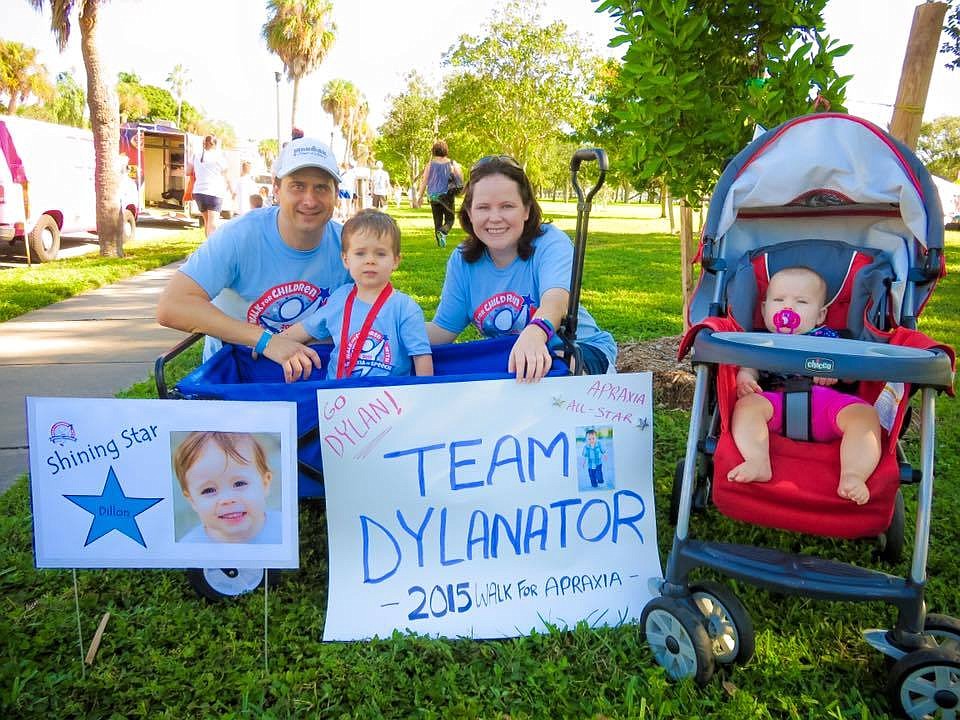- December 13, 2025
-
-
Loading

Loading

DR. PHILLIPS Speech and the ability to express ourselves through it is something we often take for granted, but about one in 1,000 children suffers from a disorder that hinders it.
Childhood Apraxia of Speech is a neurological speech disorder that affects a child’s ability to clearly and correctly produce syllables and words. It’s not well-known and not as heavily researched as other disorders and illnesses.
Cue the Childhood Apraxia of Speech Association of North America and the Orlando Walk for Apraxia.
CASANA offers resources and promotes awareness through walks held all over the country.
This year will mark the second annual Walk for Apraxia in Orlando, which will be held Saturday, Nov. 19, at Dr. P. Phillips Community Park. It is organized by local walk coordinator Heather Chenel, whose daughter, Emily, has apraxia of speech.
“I am coordinating the walk for my daughter, Emily, and the other children with apraxia of speech to give them an opportunity to be recognized for all the hard work they do to gain their voice,” Chenel said.
For Winter Garden resident and speech pathologist Kara Cannon, the walk is a way to show her 4-year-old son, Dylan — who has apraxia of speech — that he has a community rallying around him.
Cannon remembers Dylan’s birth and how the nurses talked about what a beautiful baby he was and how his Apgar scores were high. Throughout his first year of life, everything seemed normal. Dylan said his first word, “dada,” at 14 months. Although it was slightly delayed, he showed no other problematic signs.
“Around 18 months, he didn’t even have 15 words in his vocabulary,” Cannon said. “He was also signing (American Sign Language), and he understood everything we were saying. If he couldn’t say a word, he could sign it. I was suspicious but not really worried, but when he was 2, there still wasn’t that language explosion, and it never came.”
After multiple evaluations, Dylan was officially diagnosed with CAS in October 2014.
Difficulty with speech is only one symptom of CAS. Dylan receives speech therapy to help him make sounds and patterns, but also he has language therapy to add new vocabulary and grammar, as well as occupational therapy.
The Cannons attended the Tampa Bay Walk for Apraxia the last two years. They moved to Winter Garden in July and are looking forward to attending the Orlando walk on Saturday.
“One of the things we’re hoping for Dylan and other kids who struggle with apraxia is that they’re going to be stronger as a result of this and develop grit,” Cannon said. “ If they can break these barriers, they can work hard to overcome other things. That’s what we’re looking forward to for him — to have hope.”
Contact Danielle Hendrix at [email protected].